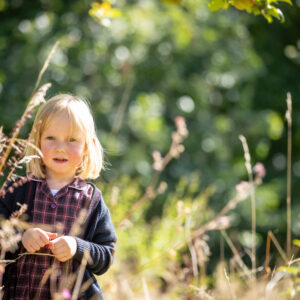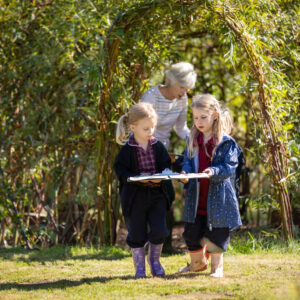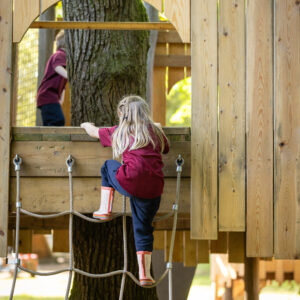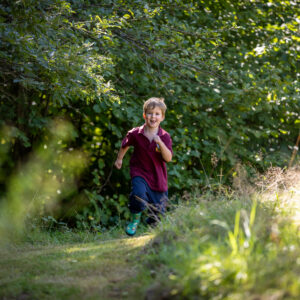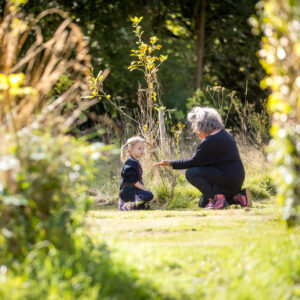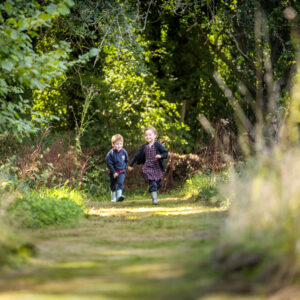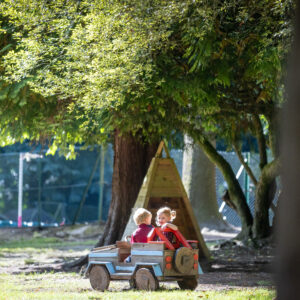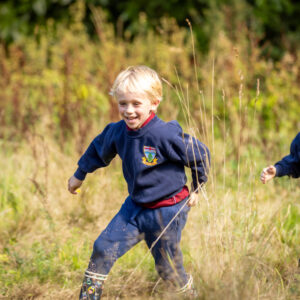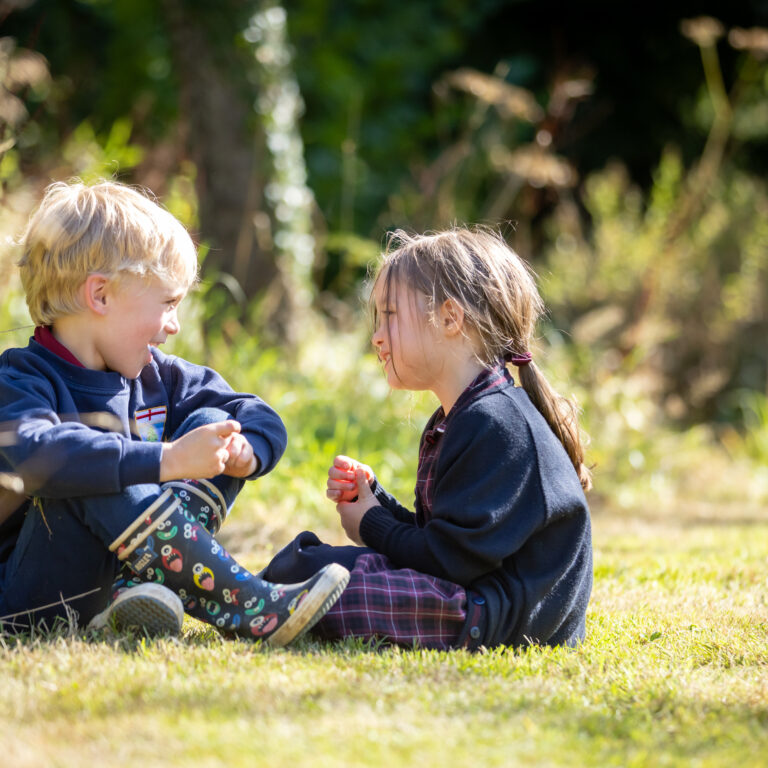Benefits of learning in nature’s classroom
Language skills
Children who play outside develop better language skills. Some of children’s most developed language emerges naturally when they are playing outdoors. Research shows that children use five times as many words when they play outdoors compared to indoors. It’s long been known that physical activity helps children find their voice. Children aren’t inhibited by volume or the pressure of talking in front of their peers. Instead, they are able to let off steam and express their opinion in a fun, non-intimidating setting.
Physical and sensory development
Being outside is a brilliant sensory experience for young children. There is so much for them to see, explore and learn. The changing nature of the outdoors makes it an incredibly stimulating and multi-sensory place to play. This is important as young children learn and gain experience through all their senses.
Executive function
These are the skills that help us plan, prioritise, troubleshoot, negotiate, and multitask; they are crucial for our success. Creativity falls in here, too, and using our imagination to problem-solve and entertain ourselves. These are skills that must be learned and practised and to do this, children need unstructured time. They need time with other children to be allowed to make up their own games, figure things out, and amuse themselves. Being outside gives them opportunities to develop these important life skills.
Motor skills
Young children need the opportunity to use their whole body and develop their gross motor skills. They have space to run and jump outside. They can also develop their fine motor skills as they pick up natural treasures such as leaves and fir cones.
Social skills
Indoor spaces can often feel overcrowded to children and naturally, they may feel intimated in this type of environment. More space outdoors can help children to join in and ‘come out of their shells’.
Independence
The extra space offered by being outdoors will give children the sense of freedom to make discoveries by themselves.
Develops an understanding of risk
Being outside provides children with more opportunities to experience risk-taking. They have the chance to take part in tasks on a much bigger scale and complete them in ways they might not when they are indoors. This develops the confidence and bravery to face life’s inevitable risks. The lessons we learn from failure are just as important as those we learn from success.
Encourages an active, healthy lifestyle for life
Through physical activity and challenges, being outdoors helps children sleep, eat, and live more healthily. This encourages them to form healthy habits for life.
Appreciation of nature and the environment
Children become joyful in their appreciation of the world and responsible as they learn how to take care of the environment around them.


